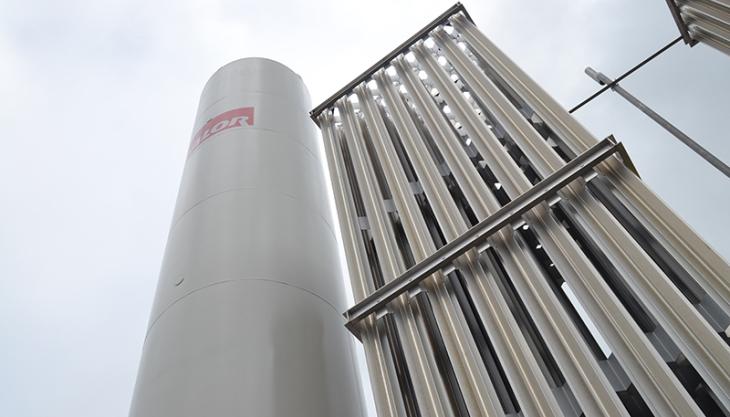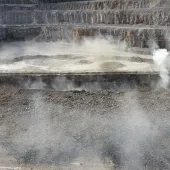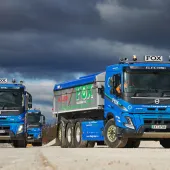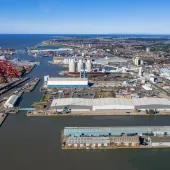First LNG-fuelled asphalt plant in the UK

Colemans Quarry asphalt plant switches to liquefied natural gas fuel supplied by Calor
AGGREGATE Industries’ Colemans Quarry asphalt plant has become the first in the UK to make the switch to liquefied natural gas (LNG), cutting both costs and carbon emissions with the help of Calor.
Based in north Somerset, the plant uses large quantities of gas to heat and dry the 250,000 tonnes of asphalt produced each year, and as the site is active 24h a day, seven days a week, maintaining a constant, reliable supply of fuel plays a vital role in hitting production targets and meeting customer demand.
The site is located off the mains gas grid and until recently the asphalt plant’s burners were fuelled with kerosene. However, after seeing an opportunity to reduce both emissions and fuel bills, Aggregate Industries approached Calor about working together on a new heating solution.
‘We made the switch to LNG because it is a cleaner source of energy,’ said plant manager Simon Evans. ‘We were previously using kerosene, but LNG is a more cost-effective product to burn. It also produces a lot less carbon, and reducing our carbon footprint is very important for Aggregate Industries.’
As well as substantially cutting fuel costs, the project has resulted in a 17% reduction in the amount of CO2 emitted per tonne of asphalt produced at the site. This cuts Aggregate Industries’ annual emissions by 1,800 tonnes.
The site is the first asphalt plant in the UK to use LNG and only the second in the world. It also represents Calor’s first turnkey LNG installation in the UK.
The commissioning project began in January 2015 and was completed in May. As well as laying new pipework and converting the site’s 16MW burner to run on LNG, Calor installed a 90 cubic metre capacity storage tank and a pair of vaporizers each capable of converting 2,000 cubic metres of gas per hour.
One of Aggregate Industries’ most important requirements was that the site’s supply needed to be extremely reliable, as any interruption in operations would be costly. Calor have ensured that there is never any risk of the site running too low on LNG by installing a telemetry system that continually measures tank levels. As soon as the level gets low, the company automatically arranges a delivery.
‘They can measure the level of gas in a tank, and they supply us with that information too,’ explained Mr Evans. ‘We’re currently having about two to three loads of LNG a week and that’s all delivered without us having to order it.’







